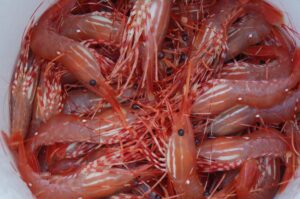
A new report on the effects of small amounts of hydrocarbons on Port Valdez shrimp is now available. The report was approved by the board of directors during the May board meeting.
News release:
Are shrimp caught in Port Valdez contaminated by Alaska North Slope crude oil? The council recently worked with scientists at the National Auke Bay Lab in Juneau to answer that question.